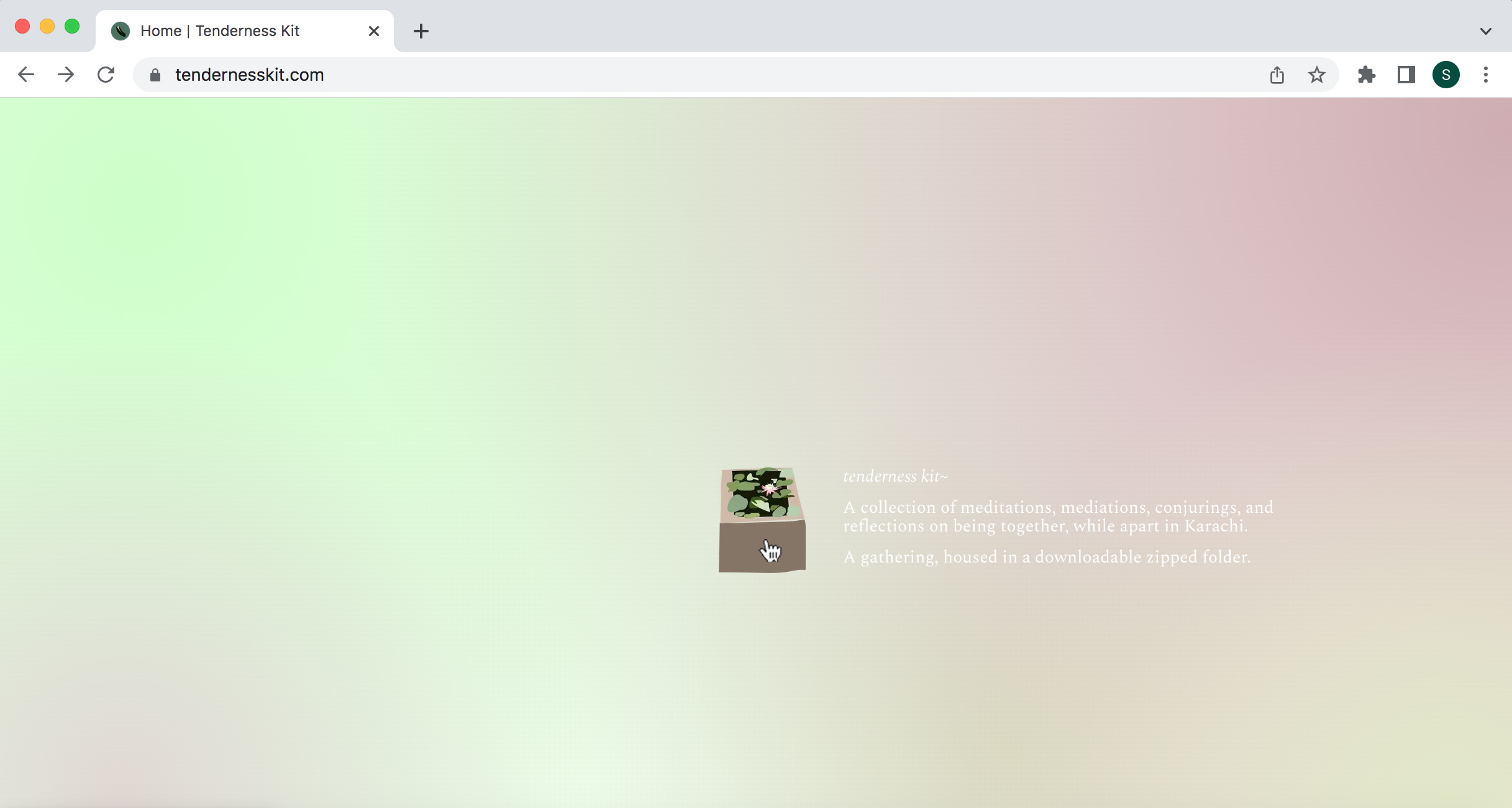tenderness kit
a downloadable zipped folder
with Omer Wasim (Saraab)
(2019–2020)
A collection of meditations, mediations, conjurings, and reflections on being together, while apart in Karachi.
In 2019, as we learned and practiced new rules of social distancing, we were confronted with a new form of interiority. Borders hardened around us: not just of the nation-state, but borders that relegate us to home and family. In these moments, we found ourselves disconnecting from our bodies, and from the new realities that were our present. As the world moved online, distances grew and expanded between us and the communities we inhabit.The tenderness kit emerged from a desire to share and exchange our collective present, experienced differently by each of us. Using our sensual registers and the power of the erotic, we hoped to return to our own bodies, and by extension to each other. It is a coming together of sorts, housed in a downloadable zipped folder.
Contributions by: Ali Samoo, Asad Alvi, Fazal Rizvi, Fiza Khatri, Jeanne Penjan Lassus, Nosheen Ali, Omer Wasim, Rahma Mian, Sadia Khatri, Shahana Rajani, Shayan Rajani.
Supported by Indus Valley School of Art and Architecture.
Webdesign by Jeanne Penjan Lassus
Coding by Tewprai Bualoi & Wasawat Somno
Animation by Tewprai Bualoi
Visit at www.tendernesskit.com

Saraab is an ongoing collaboration between Shahana Rajani and Omer Wasim. Saraab envisions their practice and its nomadic formations as part of a living organism: part mythical, part real, which can be called upon through invocations, rituals, and critical fabulations. Such organisms have always existed in militarized and heteropatriarchal orderings of the world, yet they have been systematically made to disappear. Given impermeable borders and the right-wing swing in global politics, this organism can ripple and swim their way through bodies of water, moving through landscapes and ecologies, under and over nationalisms.
Saraab—meaning mirage or nazar ka dhoka—is a quiet, amorphous entity that can go undetected. Unapologetically sensitive to their surroundings, their movements and formations work slowly and quietly to unsettle existing restrictions and regulations. They seek to create new, kind, tender infrastructures and ecologies that utilize the gaps and crevices of existing systems and spaces. Every time they recoil from a hostile touch, it is not a withdrawal, but a practice of drawing strength from inwards to open up new spaces and new possibilities for being transformed by each other.